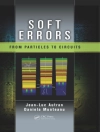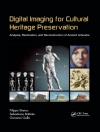The recast of the Energy Performance of Buildings Directive (EPBD) was adopted by the European Parliament and the Council of the European Union on 19 May 2010. For new buildings, the recast fixes 2020 as the deadline for all new buildings to be “nearly zero energy” (and even sooner for public buildings – by the end of 2018). This book gives practitioner an important tool to tackle the challenges of building refurbishment towards nearly zero energy.
This book is welcome at this time and sets the scene for professionals whether practitioners or researchers to learn more about how we can make whether old or new buildings more efficient and effective in terms of energy performance.
Daftar Isi
Policy instruments: The case of Germany.- Built environment life cycle process and climate change.- Benefits of refurbishment.- Building energy prediction based on occupant behavior.- Uncertainty in refurbishment investment.- Energy performance of buildings: a comparison of standard assessment methods.- Life cycle energy performance evaluation.-Retrofit scenarios to shift nearly net ZEBs towards net ZEB target.- A multiple-case study of passive house retrofits of school buildings in Austria.- State-of-the art on retrofit strategies selection using multi-objective optimization and genetic algorithms.- Multiple criteria analysis of life cycle of energy-efficient built environment.- Toxicity issues: Indoor air quality.- Toxicity issues: Radon.- Ventilation rate: thermal efficiency and health aspects.- Insulation materials made with vegetable fibres.- High performance insulation materials.- Thermal energy storage technologies.- Phase change materials in nearly zero energy building refurbishment.- Nanogel windows.- Switchable glazing technology: Electrochromic fenestration for energy efficient buildings.- Solar photovoltaic/termal tecnologies: Their application in building retrofitting.
Tentang Penulis
Investigator in the C-TAC Research Centre at the University of Minho. Authored 230 publications, 65 referenced on ISI Web of Knowledge, 38 papers published on ISI-A1 journals. First author of 12 papers in ISI-A1 journals with a special mention. Five papers in the Top 25 Hottest articles of Science Direct, five in the Top 5% most cited and two in the Top 10 most cited articles published in the last 5 years between 3356 (Scopus). Has an accumulated impact factor of 87. Citations on ISI Web of Knowledge-295 (h-index=10), citations on Scopus-416 (h-index=11), citations on Scholar Google-863 (h-index=15). Prediction for the year 2020 using Kording´s algorithm and excluding self-citations (SCI-h-index=25). Member of the editorial board of four international journals. Acted as invited reviewer in more than one hundred papers for almost 40 international journals (20 ISI and 8 Scopus). In the last 5 years was invited to review 93 SCI papers (77 ISI and 16 Scopus). Lead Editor of 8 international books with contributors from 37 countries (SCI h-index >10 (59 authors), SCI h-index >15 (41 authors), SCI h-index >20 (14 authors): Toxicity of Building Materials; Eco-efficient Concrete; Handbook of Recycled Concrete; LCA, Eco-labeling and Cases Studies; Nanotechnology for Eco-efficient construction; Eco-efficient Masonry Bricks and Blocks; Handbook of alkali-activated cements, mortars and concretes, Publisher: Wood Head Publishing Ltd, Cambridge, UK. Nearly Zero Energy Building Refurbishment: A Multidisciplinary Approach, Publisher: Springer, London, UK. Has practiced as a professional Civil Engineer during 10 years (1993-2003). Member of the Portuguese Board of Engineers since 1993, granted with the Senior title in 2003.












